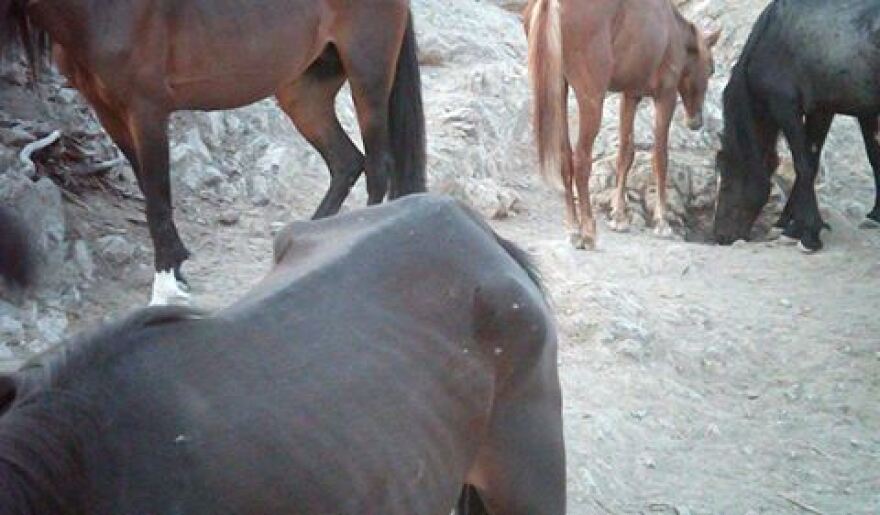A summit in Salt Lake City this week focuses on the West’s wild horses and burros.
Invited guests say there are too many animals on too little land. But wild-horse advocates, who say they were excluded from the event – contend that’s an exaggeration.
Over 118,000 wild horses and burros are on the range or in federal-agency corrals. That’s four times as many as the land can support, according to critics of the federal program. They also said oversized herds ruin streams and rangeland, and horses are starving to death, while taxpayers foot the bill.
Rep. Chris Stewart, R-Utah, said he’s added language to a federal spending bill to start allowing euthanasia. He said a ban would remain on selling horses and burros for commercial slaughter, according to the bill that still needs House and Senate approval.
“Help us fight this battle in Washington,” he said to around 230 people gathered in the ballroom of a a Salt Lake City hotel. “Help us take that battle to the Senate now. And thank you for being involved with this and caring for these animals.”
Brent Tanner of the Utah Cattlemen’s Association says everyone looking for solutions. He told the story of a rancher who hosted summit visitors and told them he’d had to sell 70 percent of his cattle so wild horses and burros could use the range.
“We’re on a crash-course path right now,” Tanner said. “There is nothing about what we are doing right now that has a positive outcome for the resources, for the horses, for the ranchers or for the communities.”
Suzanne Roy is with the American Wild Horse Campaign, an advocacy group that says it was snubbed from the summit and forced outdoors. She called the event the “Slaughter Summit.” And she said its organizers put the needs of industrial ranchers ahead of humane solutions, like birth control.
“The solutions exist, and they can be implemented when the stakeholders come together,” Roy said, sitting on a sidewalk bench outside the summit hotel.
“But, by excluding the public and excluding key stakeholders, we’re never going to find a solution. We’re only going to continue this battle.”
Advocacy groups said a large majority of Americans support their cause.





